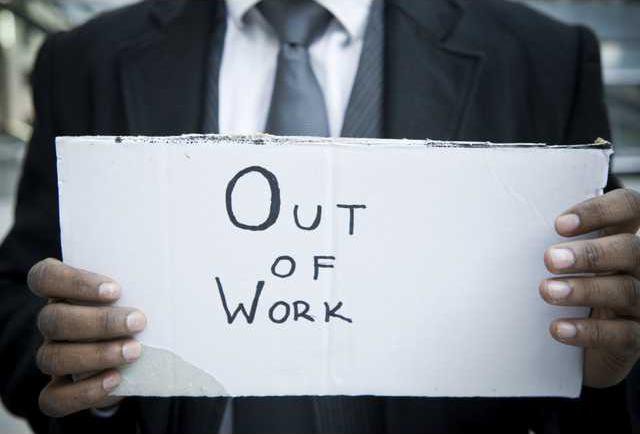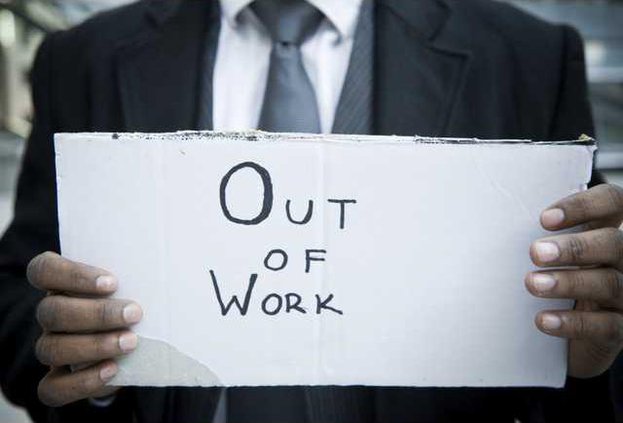Gallup CEO Jim Clifton made headlines last week when he published an op-ed calling attention to a problem that most people don't know: Unemployment numbers are grossly misleading.
The official government rate that is currently "down" to 5.6 percent doesn't count those who have been out of work for over 27 weeks and stopped looking for work, Clifton points out. These are called the long-term unemployed, and there are 3 million of them in America.
Gallup defines a "good job" as 30-plus hours a week and a regular paycheck. The U.S. only delivers that kind of work at the low rate of 44 percent, according to its data.
"The great American dream is to have a good job," writes Clifton. "A good job is an individual's primary identity, their very self-worth, their dignity it establishes the relationship they have with their friends, community and country. We are failing the American dream."
So, how do the long-term unemployed get back in the game? A program called Platform to Employment, which launched in Nevada last fall, takes a radical stab at getting the long-term out-of-work back on the job with job-readiness classes, and an offer to cover up to two months of salary for any employer willing to give them a chance.
Nevada is the first state to use federal funds for the program, but Colorado, Indiana and Connecticut have all green-lighted the program as well. Connecticut will set aside $3 million to help 500 people.
P2E isn't cheap. It costs about $6,000 per person in Nevada, but it is working? So far, 80 percent of participants have jobs and 90 percent stayed on after a trial period better success rates than any other workforce-training program, according to The Atlantic.
Not taking steps to help the long-term unemployed is also costly. Aside from the cost in human dignity and productivity, many long-term unemployed apply for disability insurance and don't return to work.
According to the Urban Institute, long-term joblessness also affects the housing market, community economies and the crime rate. One study showed that people who fell victim to plant closings had a 14 percent higher probability of being arrested.
Nevada's P2E program requires five weeks of classes on interviewing and resume writing, and at least one visit with a mental health counselor. At the end of the program, applicants apply for jobs.
Cymphonie Redic, 31, is one P2E graduate who talked her way into the class of 25 (there were 400 applicants). She was struggling to raise her 3-year-old, getting by on food stamps and getting more depressed by the day, she told The Atlantic.
Now she has a job as a receptionist at Milan Institute, a career college in Las Vegas.
We interviewed Cymphonie and said, 'Hands down, were done. Shes got every characteristic weve been looking for,' Christopher Moderson, the school's director, told The Atlantic. From the moment she set foot in the door, you could tell that she was serious about wanting to work and wanting to do a great job for whomever she worked for, he said.
The counseling component of the program is one of the most important said Joseph Carbone, who founded the Nevada program, because there is so much shame and loss of confidence that comes with losing work. Long-term unemployed face foreclosures, divorces and mental health breakdowns.
What happens to people is that they become hopeless," he told the Atlantic. "They just kind of drop into the abyss."
The official government rate that is currently "down" to 5.6 percent doesn't count those who have been out of work for over 27 weeks and stopped looking for work, Clifton points out. These are called the long-term unemployed, and there are 3 million of them in America.
Gallup defines a "good job" as 30-plus hours a week and a regular paycheck. The U.S. only delivers that kind of work at the low rate of 44 percent, according to its data.
"The great American dream is to have a good job," writes Clifton. "A good job is an individual's primary identity, their very self-worth, their dignity it establishes the relationship they have with their friends, community and country. We are failing the American dream."
So, how do the long-term unemployed get back in the game? A program called Platform to Employment, which launched in Nevada last fall, takes a radical stab at getting the long-term out-of-work back on the job with job-readiness classes, and an offer to cover up to two months of salary for any employer willing to give them a chance.
Nevada is the first state to use federal funds for the program, but Colorado, Indiana and Connecticut have all green-lighted the program as well. Connecticut will set aside $3 million to help 500 people.
P2E isn't cheap. It costs about $6,000 per person in Nevada, but it is working? So far, 80 percent of participants have jobs and 90 percent stayed on after a trial period better success rates than any other workforce-training program, according to The Atlantic.
Not taking steps to help the long-term unemployed is also costly. Aside from the cost in human dignity and productivity, many long-term unemployed apply for disability insurance and don't return to work.
According to the Urban Institute, long-term joblessness also affects the housing market, community economies and the crime rate. One study showed that people who fell victim to plant closings had a 14 percent higher probability of being arrested.
Nevada's P2E program requires five weeks of classes on interviewing and resume writing, and at least one visit with a mental health counselor. At the end of the program, applicants apply for jobs.
Cymphonie Redic, 31, is one P2E graduate who talked her way into the class of 25 (there were 400 applicants). She was struggling to raise her 3-year-old, getting by on food stamps and getting more depressed by the day, she told The Atlantic.
Now she has a job as a receptionist at Milan Institute, a career college in Las Vegas.
We interviewed Cymphonie and said, 'Hands down, were done. Shes got every characteristic weve been looking for,' Christopher Moderson, the school's director, told The Atlantic. From the moment she set foot in the door, you could tell that she was serious about wanting to work and wanting to do a great job for whomever she worked for, he said.
The counseling component of the program is one of the most important said Joseph Carbone, who founded the Nevada program, because there is so much shame and loss of confidence that comes with losing work. Long-term unemployed face foreclosures, divorces and mental health breakdowns.
What happens to people is that they become hopeless," he told the Atlantic. "They just kind of drop into the abyss."

